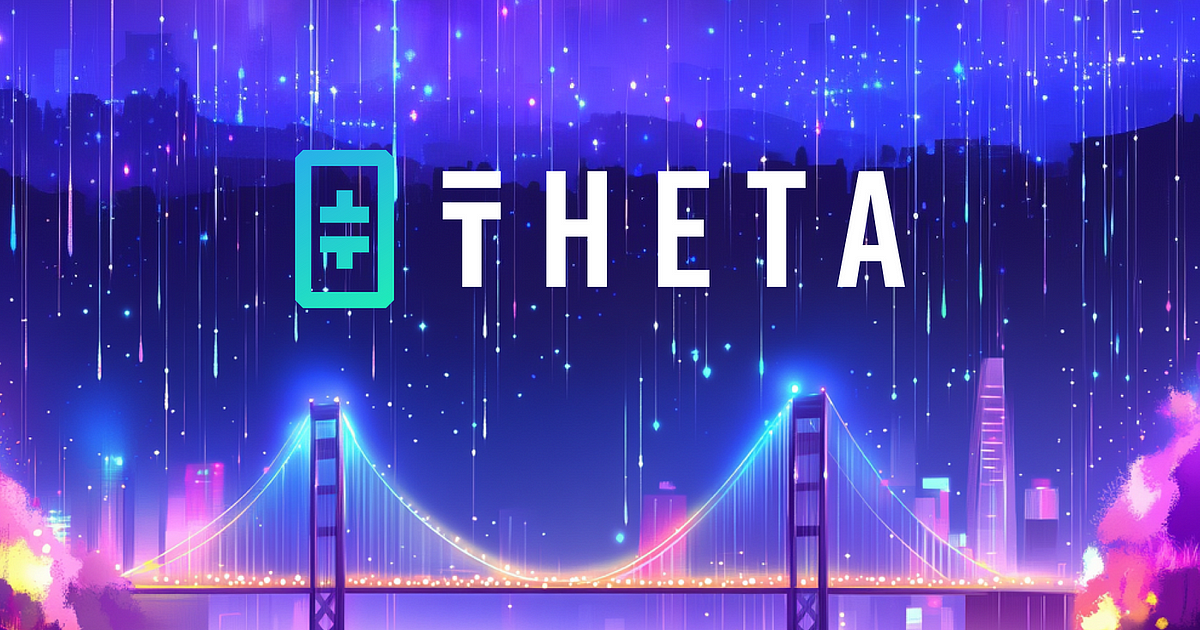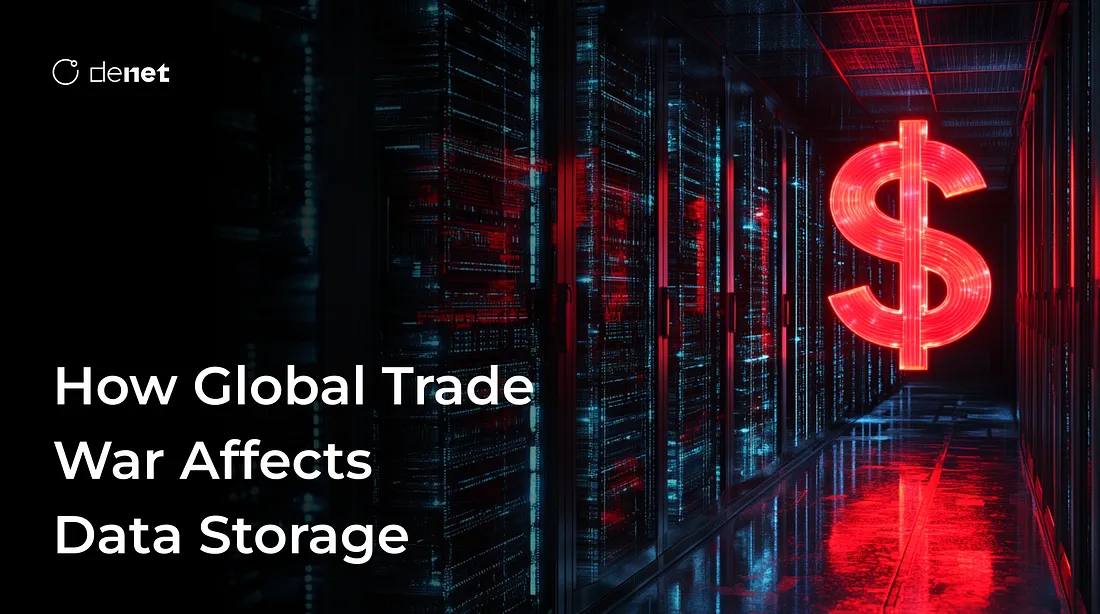Latest DePIN News

8 months ago
Helium (HNT) Shows Signs of Bullish Trend Amid Market Volatility
Helium (HNT) has recently shown signs of a potential bullish trend, despite experiencing a retracement of nearly 24% from its local high of $4.5. On April 12, HNT broke through a significant resistance level at $3.4, suggesting an end to the downtrend that had persisted since the end of January. This bullish structure indicates that Helium bulls are attempting to establish an upward trajectory, although the market remains sensitive to broader cryptocurrency movements, particularly those of Bitcoin (BTC).
Currently, HNT is facing crucial support levels at $3 and $2.25, which could come into play due to two primary factors. First, the volatility surrounding Bitcoin poses a risk; if BTC falls below $83k, it could trigger widespread selling across the market, negatively impacting HNT. Secondly, the buying pressure for HNT has not been overwhelming, as indicated by the On-Balance Volume (OBV), which has struggled to surpass its February highs. A sustained uptrend in the OBV could signal a stronger rally for Helium in the near future.
On the 4-hour chart, the Relative Strength Index (RSI) indicates a slowdown in momentum over the past week, with the price action revealing resistance at the bearish breaker block around $3.7. As of now, HNT is trading near the 50% retracement level, with the potential to bounce back above $3.7, contingent on increased buying pressure. However, if Bitcoin drops below $83k, the short-term outlook for Helium could turn bearish, prompting traders to consider selling opportunities targeting a retracement to the $2.75-$3 range.

8 months ago
Navigating the Regulatory Landscape for DePIN in the U.S.
As the Decentralized Physical Infrastructure Networks (DePIN) sector gains traction in the cryptocurrency landscape, a critical question arises regarding its position within the U.S. regulatory framework. Current congressional legislation primarily addresses digital assets in a broad sense, encompassing stablecoins, tokens, and market infrastructure. However, the implications for DePIN are profound, as these policies will influence how DePIN projects secure funding, incentivize contributors, and deliver real-world services. Notably, legislation such as the STABLE Act and the GENIUS Act could significantly impact the stablecoin ecosystem that many DePIN projects rely on, potentially steering them towards more centralized options.
The FIT21 Act, which classifies tokens based on their decentralization and utility, is particularly relevant for DePIN. Tokens like $IOTX (IoTeX) serve as crucial infrastructure enablers, rewarding users and validating data. If classified as securities, these tokens could face stringent regulations that limit their exchange listings and user access. Additionally, the Digital Asset Market Structure Act introduces compliance requirements that may burden DePIN projects, especially those interacting with real-world payments. These developments highlight the urgent need for clarity in the regulatory landscape to foster innovation within the DePIN sector.
Advocacy efforts led by IoTeX and the Blockchain Association are pivotal in ensuring DePIN's recognition as legitimate infrastructure rather than mere financial speculation. Their recent engagement with congressional offices aims to educate lawmakers on the real-world applications of DePIN, emphasizing the need for supportive regulations. As the U.S. navigates this evolving landscape, it faces a choice: to lead in infrastructure innovation or risk losing it to other nations. With continued advocacy, DePIN can secure its place as a vital component of the national infrastructure narrative, paving the way for a decentralized future that benefits society as a whole.

8 months ago
Stanford's AI Research Lab Partners with Theta EdgeCloud for Enhanced Research
Stanford Engineering Assistant Professor Ellen Vitercik's AI research lab is set to leverage Theta EdgeCloud's hybrid cloud infrastructure to enhance its research in discrete optimization and algorithmic reasoning. This collaboration will enable the lab to utilize EdgeCloud's decentralized GPU, which offers scalable and high-performance computing power at a competitive cost. The integration of this technology is expected to significantly accelerate the training of AI models and facilitate advanced research initiatives. Other prominent academic institutions, such as Seoul National University, KAIST, and the University of Oregon, are also utilizing EdgeCloud's infrastructure to boost their AI research productivity.
Ellen Vitercik specializes in machine learning, algorithmic reasoning, and the intersection of computation and economics. Her research lab is focused on several key areas, including the application of large language models (LLMs) for optimization, algorithmic content selection, and the generalization of clustering algorithms across various dataset sizes. By employing Theta EdgeCloud's resources, the lab aims to explore how AI can enhance decision-making processes in economic contexts, such as pricing strategies and targeted marketing.
Theta EdgeCloud's hybrid GPU infrastructure is designed to provide on-demand computing power that is both scalable and cost-effective, making it an ideal solution for academic research. The collaboration with Vitercik's lab exemplifies the growing trend of integrating advanced cloud computing technologies into academic research, particularly in the field of AI. This partnership not only promises to advance Vitercik's research objectives but also contributes to the broader landscape of AI research across multiple institutions worldwide.

8 months ago
DIMO Unveils Enhanced Developer Console with New Features and Decentralization Focus
DIMO has recently announced an exciting update to its Developer Console, marking a significant evolution since its initial launch on August 8, 2024. This update, known as DIMO Build, not only refreshes the branding with a new visual identity but also enhances the user experience by providing greater freedom and flexibility for developers. The Console now features a user-centric design that aligns with future expansion projects, including webhooks and low-code tools, ensuring that developers can build with less distraction and more focus on their projects.
One of the standout features of the new Console is the integration of social logins, which streamlines operations by consolidating login processes directly with DIMO Auth Servers. This update includes the addition of Apple logins, catering to users of the DIMO Mobile app. Furthermore, the login flow has been re-engineered to allow users to opt for email OTP login if they encounter compatibility issues with passkeys. This flexibility is aimed at reducing friction in the user experience, allowing developers to spend less time on signing transactions and more on building.
In addition to these enhancements, DIMO has embraced decentralization by integrating developer license information directly into the Identity API, mapping it to on-chain data. This shift eliminates reliance on off-chain databases, promoting transparency and reducing discrepancies. The updated Console also introduces a comprehensive vehicle list feature, providing insights into license details, including on-chain vehicle IDs. To support developers further, DIMO has established a dedicated support pipeline, ensuring that developers can easily connect with the engineering team behind the Console. Overall, these updates signify DIMO's commitment to fostering a more open and efficient development environment in the decentralized space.

8 months ago
Solana's SOL Token Faces Challenges but Shows Signs of Recovery
Solana's native token SOL has recently faced challenges in maintaining its bullish momentum after peaking at $134 on April 14. Currently, SOL is trading 57% below its all-time high, primarily due to a notable decline in decentralized application (DApp) activity. However, analysts suggest that the altcoin's rally may not be over yet, citing a significant increase in deposits on the Solana network as a potential catalyst for short-term price recovery. With a total value locked (TVL) of $6.9 billion, Solana has positioned itself as the second-largest blockchain by TVL, outperforming competitors like Tron and Base in recent weeks.
In addition to its impressive TVL, Solana has reclaimed the top spot in decentralized exchange (DEX) volumes, surpassing Ethereum layer-2 solutions. In the week ending April 16, trading activity on Solana DApps reached $15.8 billion, exceeding the combined volume of Ethereum scaling solutions by over 50%. This surge was supported by notable increases in trading volumes on platforms such as Pump-fun and Raydium, while major Ethereum DApps like Uniswap and Curve Finance experienced declines. Furthermore, other DApps on Solana, such as Ondo Finance and Exponent, have also shown substantial growth in their total value locked, indicating a broader trend of increasing activity on the network.
Looking ahead, analysts are optimistic about the potential approval of a Solana spot exchange-traded fund (ETF) in the United States by 2025. However, expectations for significant inflows remain tempered due to a general lack of institutional interest and the recent underperformance of similar Ethereum ETF products. As investors await the results of a full audit of US federal agencies' crypto holdings, the future of SOL's price remains uncertain. Without external catalysts to attract new participants to the crypto ecosystem, the increase in TVL and DEX market share alone may not be sufficient to drive SOL's price to previous highs, such as the $180 level seen 45 days ago.

8 months ago
Crypto Market Declines as XYO Launches New L1 and Everclear Goes Live
In the latest crypto news, the market is experiencing a downturn, with the global cryptocurrency market capitalization falling by 1.6% to $2.79 trillion. Daily trading volumes have also decreased to $86 billion, indicating a sluggish trading environment. Among the top 100 cryptocurrencies, only a few have seen gains, with Story (IP) leading the way with a 7.1% increase, while XDC Network (XDC) suffered the most significant drop at 6.9%. Bitcoin (BTC) remains relatively stable, appreciating by 0.7%, while Ethereum (ETH) and other major coins like Dogecoin (DOGE) and TRON (TRX) are also down, reflecting the overall bearish sentiment in the market.
In a significant development, XYO has announced its migration from the Ethereum L2 ecosystem to its own Layer 1 (L1) blockchain focused on Decentralized Physical Infrastructure Networks (DePIN). This move comes in response to the need for a blockchain that can efficiently handle large volumes of real-time data. XYO is introducing a new consensus mechanism called Proof of Perfect, which aims to enhance transaction processing efficiency by allowing nodes to focus on recent transactions while archiving older data. Additionally, XYO is launching a new utility token, XL1, which will work alongside the original XYO token to support scalable network operations.
Furthermore, Everclear, a cross-chain clearing and settlement protocol, has successfully launched its mainnet, offering zero-fee rebalancing and expanding support to Solana and other chains. The protocol aims to streamline digital asset transactions across multiple chains, similar to how Visa and SWIFT revolutionized traditional banking. In another notable announcement, UFC CEO Dana White has joined blockchain firm VeChain as an advisor, bringing his expertise in brand expansion and fan engagement to help promote blockchain adoption in mainstream markets. This collaboration is expected to enhance VeChain's sustainability initiatives and increase awareness of blockchain technology in sports communities.

8 months ago
BlockDAG: The Leading Contender for Future Crypto Success
As the cryptocurrency market begins to recover from its early-year stagnation, traders are increasingly focused on projects that not only show current promise but also demonstrate long-term viability. Among the various contenders, BlockDAG has emerged as a frontrunner for 2025, boasting a presale that has already garnered over $214 million and a rapidly growing community of over a million users. This impressive traction is attributed to BlockDAG's innovative architecture, which combines a Directed Acyclic Graph (DAG) structure with Proof-of-Work, allowing for parallel transaction processing and enhanced scalability. With a Beta Testnet already live and a mainnet launch on the horizon, analysts are optimistic about BlockDAG's potential, projecting a target price of $1 within the next 12 to 18 months.
In contrast, other notable projects like Polygon, Solana, and Filecoin are also making headlines but face their own challenges. Polygon recently partnered with Jio Platforms to boost Web3 adoption in India, yet its token MATIC has struggled to gain traction, trading around $0.178. Similarly, Solana continues to attract attention due to its speed and developer-friendly ecosystem, but recent token unlocks have created short-term headwinds, causing traders to exercise caution. Meanwhile, Filecoin experienced a brief surge following its listing on the Upbit exchange, but its long-term sustainability remains uncertain amid stiff competition in decentralized storage.
Ultimately, while each project brings unique strengths to the table, BlockDAG stands out due to its combination of robust technology, early-stage access, and rapid user adoption. The project's presale success and the impending rollout of its mainnet and exchange listings position it as a compelling option for investors looking for the best crypto for the future. With its current price at $0.0248, BlockDAG offers significant upside potential, making it a project worth watching closely in the evolving cryptocurrency landscape.

8 months ago
DeNet Shares Vision on Rising Data Storage Costs and Data Sovereignty
April 14, 2025 – As global trade wars escalate, threatening millions of petabytes of data and driving up storage costs, DeNet is launching its Node Sale to empower a decentralized, sovereign solution.
Tariffs between the US, China, and Europe—now at 145% on Chinese imports and 125% on American goods—are disrupting data center supply chains, inflating equipment prices, and destabilizing energy markets. Centralized data centers face a grim choice: raise fees, risk outages, or shut down entirely, impacting businesses and consumers worldwide.
DeNet’s Node Sale is a key step in launching the newest version of decentralized storage protocol, which is 90% ready. By enabling individuals and organizations to become Datakeeper nodes through the sale, DeNet is building a global network that ensures secure, cost-effective, and sovereign data storage—critical in today’s volatile economy.
“As data sovereignty develops, users, businesses, and states face a choice: rely on regional data centers or opt for decentralized solutions like DeNet to avoid risks of information appropriation. DeNet’s protocol, deployable on various blockchains, can be launched locally within the borders of one state and region; it ensures secure, privacy-first storage for all”, says Rafik Singatullin, co-founder of DeNet.
DeNet’s current Datakeeper Node Sale is a closed and highly focused event only for those with reservations, running from April 10 to April 17, 2025. In the future, the company may conduct new sales, information about which can be found in their community.
About DeNet:
DeNet is a programmable DePIN storage layer that unlocks the global potential of unused storage through tokenized RWA capacity. With over 3.5 million users entrusting 15 million files and 1.6 million Watcher Node devices worldwide, DeNet stands out as a fully operational solution, solidifying its leadership in decentralized storage.
Website: https://denet.pro/
Twitter/X: https://x.com/DeNetPro

8 months ago
Helium Secures Regulatory Victory, Price Surges Amid DePIN Momentum
In a significant development for Helium and the Decentralized Physical Infrastructure (DePIN) movement, the U.S. SEC has officially dismissed its claims of unregistered securities against Helium with prejudice. This ruling means that the SEC cannot refile these charges, effectively clearing a major regulatory hurdle for Helium. As a result, the Helium Network and its associated tokens—HNT, MOBILE, and IOT—can now operate with renewed confidence. Following this announcement, the price of Helium (HNT) surged over 6%, reaching levels not seen in months, raising questions about its potential for further gains.
This regulatory clarity is a pivotal moment not only for HNT holders but also for the broader cryptocurrency landscape. The SEC's acknowledgment that Helium Hotspots and its token distribution do not constitute securities removes a significant barrier to adoption. This development allows Helium to expand its operations globally, attract new partnerships, and pursue integrations without the looming threat of legal complications. The positive sentiment among investors is evident in the price charts, which reflect a bullish trend as Helium prepares for a new phase of growth.
From a technical perspective, Helium's daily chart indicates a breakout, with the price climbing to $3.72 after weeks of consolidation. The token has reclaimed key moving averages, suggesting strong bullish momentum. If HNT maintains its position above the 100-day SMA at $3.71, it could target the 200-day SMA at $5.32, representing a potential 40% increase. Additionally, the hourly chart shows a recent parabolic spike followed by healthy consolidation, indicating that while profit-taking is occurring, the overall bullish trend remains intact. With the SEC's decision paving the way for Helium's future, projections for HNT could see it reaching between $5.00 and $6.00 in the near term, solidifying its status as a leader in the DePIN sector.

8 months ago
Top Cryptocurrencies to Watch: Fartcoin, Solana, and Arbitrum
Last week, the cryptocurrency market experienced a mixed performance, with notable tokens like Onyxcoin, Fartcoin, Jasmy, Hyperliquid, and Helium witnessing significant gains. In contrast, other altcoins such as Tezos, EOS, Movement, Toncoin, and Ethereum faced double-digit declines. Bitcoin remained in a consolidation phase, despite the US dollar index dropping and U.S. equities fluctuating. This article highlights Fartcoin, Solana, and Arbitrum as the top cryptocurrencies to monitor this week due to their recent performances and market dynamics.
Solana, a prominent layer-1 network, is gaining attention this week due to a notable increase in transactions. According to Nansen data, Solana's transactions surged by 6.6% over the past week, reaching 355 million, while transaction fees exceeded $6.15 million. Additionally, Solana has surpassed Ethereum in decentralized exchange transactions, processing over $15 billion recently. The SOL price has rebounded to $129 after hitting a low of $94.65 earlier this month, with potential for further gains as it approaches the 38.2% Fibonacci Retracement level at $170.
Fartcoin is another cryptocurrency to watch, having surged over 364% from its lowest point this year, marking its highest level since February 1. This surge is attributed to whale accumulation, creating a fear of missing out among investors. Technically, Fartcoin has formed a cup and handle pattern, indicating potential for further upside, with bulls targeting a key resistance level at $1.5. Meanwhile, Arbitrum, despite being in a downtrend, has seen a 40% increase in DEX transaction volume, reaching $4.6 billion. As it approaches a milestone of $500 billion in DEX transactions, the upcoming token unlock worth over $28 million could influence ARB's price, which has formed a bullish divergence pattern, suggesting a possible rebound ahead.
Signup for latest DePIN news and updates